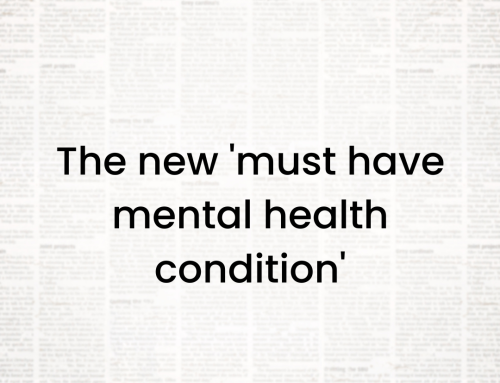When it comes to disclosing neurodiversity in the workplace, it can be a really scary thing to do. Speaking from my own experience, many concerns can go through your mind when you decide if you want to speak up or not.
This includes practical worries – will this affect my progression? Will my colleagues think differently of me? Will I be treated differently by management?
I chose to tell my employers that I have ADHD because I wanted to be visible as a neurodiverse person within my chosen profession of journalism. I also wanted to ask that they make reasonable adjustments when it comes to assessing my work. Or providing equipment that can help me to do my job more easily. I can make inattentive mistakes, rush through assignments or struggle to sit still in meetings which can cause issues for me if someone doesn’t know that I have ADHD.
It wasn’t an easy decision to make as I worried about all of the questions above, and then some. However, in my current role, this hasn’t been an issue even once. The statistics say that one in five people is neurodiverse, which can include autism, Tourette’s syndrome or ADHD. So chances are that you are not as alone in the board room as you may feel. However, it can still be hard to come out as a neurodiverse person even if you know there are others in the organisation. Luckily, you don’t have to if you choose not to and you will still be able to ask for reasonable adjustments to your workplace.
What is a reasonable adjustment?
A reasonable adjustment is a change that must be made to remove a disadvantage related to disability. For me, this counts as providing software to spot mistakes in my copy or allowing me to leave a meeting for a few minutes when I can’t sit down but there are many others.
Claire Holland, Head of Training at Enhance the UK explains that you don’t need to disclose if you choose not to.
“Even if someone doesn’t disclose, it doesn’t mean that employers don’t have to make reasonable adjustments. It’s a very grey area so if the manager or company as a whole can be reasonably excepted to know you are disabled then they should offer the adjustments regardless,” she explained.
She added: “This could be mentioning it as part of the recruitment process or if there are signs that someone is disabled or neurodiverse.”
There are lots of ways in which the workplace can be adjusted to accommodate and improve access for people with disabilities. Some may be more obvious than others, however it’s worth noting what causes you the most difficulties and assessing what the company could do to make it easier.
For me, travel causes me great anxiety as my ADHD brain cannot process numbers or maps quickly. This may not sound like much, but getting a bus when you don’t know the route ahead of time causes me great panic. Especially when I am travelling to jobs. Luckily, my workplace allows me to take a taxi, reducing the stress I encounter when I do need to leave my house.
It’s a simple thing but it has saved me from having panic attacks and crying in public when I would get lost or having to try to afford taxis.
Claire said: “Other reasonable adjustments could be allowing someone to work from home or providing quiet areas at certain times. It could also be physical adaptions such as screens that pull up around the desk or providing software like Grammarly or task management software.”
When should I tell my workplace about my disability?
Interestingly, there is no pressure to tell a company within a certain timeframe to qualify for adjustments. So if you didn’t tell a company the very second that you were hired, it doesn’t matter. It is worth noting that providing confirmation may come down to the policies of the company that you work for. Some places may ask for doctor’s notes or involve occupational health workers.
Claire said: “It depends on the organisation as a whole so some businesses might involve occupational health. It’s just a conversation although people can worry about occupational health becoming involved because it feels formal. Their role is to give adjustment ideas or have those conversations”
“They may ask you if you have a formal diagnosis but this is bad practice. If you want to create a culture of inclusion then regardless if someone is disabled or not, it’s good practice for an organisation to think about what they can do to support their staff regardless of a diagnosis or not.”
What if nothing changes?
Asking for reasonable adjustments or changes is half the battle with the other half keeping an eye on what the organisation implements. What do you do if the promises made are not kept?
“There are a few things you can do. I would always suggest having a conversation with the manager to find out why. There could be a valid reason, but it should be an ongoing conversation to find something that works for both parties”.
“It depends on the organisation but you should be able to escalate the problem to speak to HR. You can always contact ACAS as they are there to facilitate conversations and support both employers and employees. They can give you an idea of what your employers should be doing. Especially if you have escalated a complaint and they have done nothing.”
ACAS is a workplace expert service that provides free and impartial advice for employers and employees. They provide training and helps resolve a conflict between both parties.
Claire highlighted: “Most organisations, once someone who understands the law and what they are legally required to do becomes involved then it can be sorted out quickly and effectively.”
Some grants are available such as Access to Work which can help people to make changes to their workplace. This could be money towards software or physical items like certain desks or chairs that are adapted or more comfortable for disabled people.
It can be applied for without your employers having to be involved but Access to Work may contact your employer. It could mean an assessment has to be carried out. This means a representative entering the workplace to look at set-up or potential improvements.
“What have you got to lose by applying? You need to be brutally honest with them about how difficult things are. It’s easy to make things seem easier than they are as it makes us feel better. However you need to spell it out with them.”
Written by: Caroline DeBarra



